Sometimes the only difference between falling short on a daily task that you’ve done a thousand times and achieving something impossible is confidence. We all falter.
We all feel a drop in our self-esteem and confidence from time to time, but how we chose to react is what makes the difference between just having a bad moment and developing a negative self-fulfilling prophecy.
Sometimes the only difference between two co-workers who are equal in experience and competing for the same promotion is self-confidence. People with a healthy sense of confidence tend to carry themselves upright rather than slouched over-excepting any physical factors.
Tone of voice, use of certain phrases or words, and facial expressions all denote a person’s level of confidence. You can have the education and knowledge for a task, but if you lack the understanding that you are capable of completing the task, you are going to fall short every time.
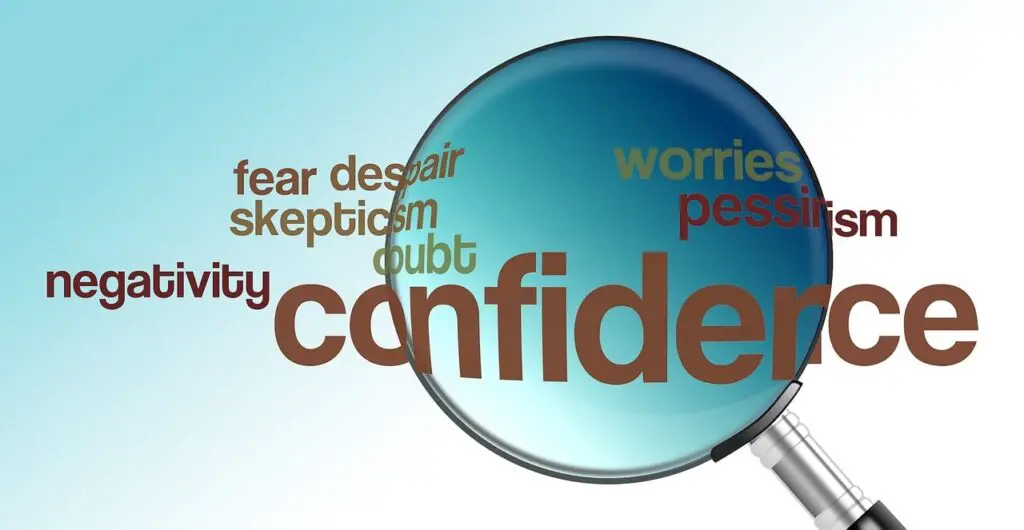
Self-confidence is ultimately what gives you the ability to-
- Speak publicly in front of an audience
- Learn about new technologies
- Exit a negative relationship
- Start a business
- Handle confrontation or manage conflict
- Change jobs or career focus
- or Learn a new language and then actually use it.
This is why self-confidence is so important. It’s a life skill that we have in our arsenal to utilize any time we need it. This tool is necessary for completing most tasks, achieving any goals, and sometimes having the fearlessness to take that first step. For some of us, though, this weapon is dull and needs some refining, and polishing up.
Basics Of Confidence
Let’s start with a basic understanding of differences and commonalities of some of the components and enemies of developed, usable, and healthy self-confidence (Websters New Riverside University Dictionary, 1984).
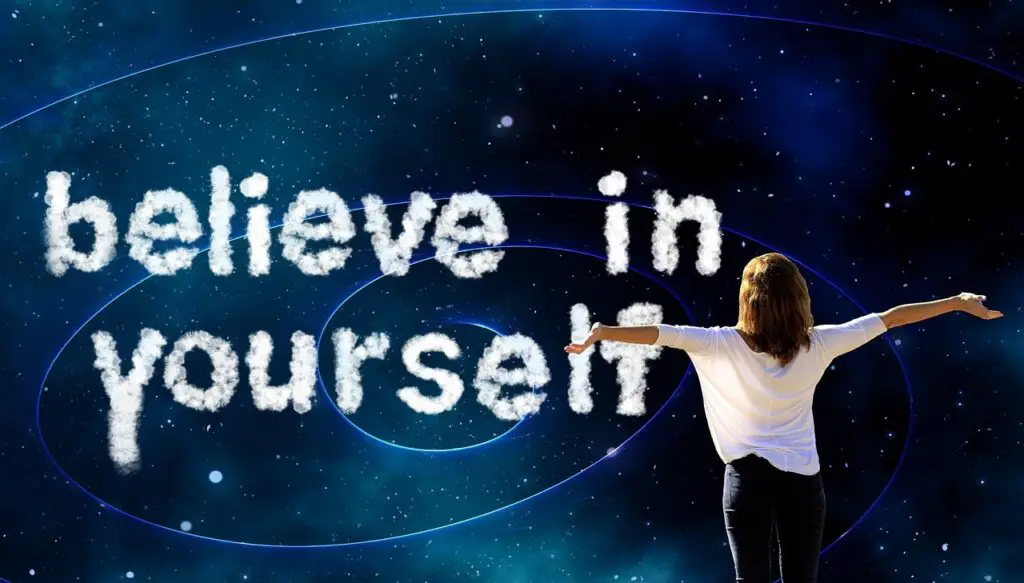
- Optimism– a personal disposition where you just generally expect the best possible outcome or are able to focus on the most positive aspects of a given situation or task without relying on faith, or foreknowledge.
- Pessimism– a tendency to automatically expect the worst from people, situations, and the universe in general despite having had good life experiences in the past.
- Reality– what is actually true and tangible
- Fantasy– a creative form from desire, wishes, blind optimism, and fancy
- Confidence and Self-Confidence– Trust or faith in a relationship, situation, or yourself. This is an absolute certainty in your skills, or the skills and trustworthiness of another person.
- Doubt and Self-Doubt– a tendency to be skeptical or undecided about a given situation, person, or yourself. This comes from a lack of self-confidence or confidence in general
- Respect and Self-Respect– a deference or high regard for someone else and yourself, in your abilities, and without violation or interference.
- Volition– wilful choice or the power to make that choice. To act of one’s own volition does not necessarily denote acting from one’s wishes or even best interests. This is simply having the power to choose, and then doing so.
Low self-esteem and confidence come from a mix of past experiences and point of view. It’s the sum of your thoughts, actions, and the many ways you’ve allowed other people to impact your life.
If you’re always focused on the negative or bad thing that just happened to you, or because of you, you will never be able to focus on anything else.
People with a developed and healthy sense of self-confidence are able to look past the problem to the solution in any problem-solving equation or situation.

Problem solving is about figuring out what the next step is.
- What just happened
- What happens next?
- What are the next steps?
- What are the components?
- Which, if any, of the components are in my control?
- Which, if any, of the next steps are in my hands?
It’s very simple. You work it out. You recognize the problem, without concentrating on it to the point of not being able to move past it, and ask yourself; “What’s next?”
People who thrive in high pressure situations are able to do so because when they are faced with a problem they focus on the solution and move on from there. A lack of confidence makes it easier to be cynical in a high-pressure environment where things are always blowing up around you. But, when you are able to work from a place where you’re sure about yourself, you can ask yourself what comes next in dealing with problems in life and work.
The Larger Factors To Consider
People have said that self-confidence is something you either have or don’t: It can’t be learned. This couldn’t be farther from the truth. Self-confidence is not based on your actual ability to successfully complete a task. It’s based on your belief in your ability. That belief comes from past experiences, current thought processes, and personal actions.
There is a long list of daily tasks you can complete that will help you to develop healthier intrapersonal habits so you can get the most out of the larger issues noted in these next few pages.
You can make lists, pay special attention to specific tasks, work on your habits around procrastinating tasks away, and take a look at the people you keep in your life.

Let’s talk about the larger tasks first: The tasks that encompass the things you can do daily.
- Resilience
- Self-Talk
- Significant Others
- Past Experiences
Why Resilience Is An Important Life Skill
Everyday tasks and life throws a lot at each of us. We all deal with stress daily, and sometimes hourly. In earlier days, stress was a state of panic that was needed to help you escape a literal life or death situation like a crocodile lunging at you from out of the water, or a cheetah chasing you. Let’s be honest though, if a cheetah is chasing you, you’re probably done for.
The point is that a stress response was naturally evolved to help us deal with situations like these. Now, in a more civilized society, stress has become a response to an irritable boss, hearing criticism on a project that took you a great deal of time and effort or trying to complete a task that you don’t have the confidence for.
When your body feels stress from these factors, it’s responding in the way it would’ve in centuries past to a life and death situation. This is where resilience comes in. Resilience is your ability to deal with these stressors in a healthy and productive way.
It’s the ability to experience stress, recognize it, and deal with it in a healthy way. Unfortunately, stress is one of those things that we feel emotionally but can also have negative physiological effects.
When you experience stress it doesn’t matter if it’s from a crocodile or an irritated boss, the physiological effect is the same: Your hypothalamus sets off an alarm in your body which sends signals to your adrenal glands (located on top of your kidneys), to release certain hormones like adrenaline and cortisol (Mayo Clinic, 2018).
Honing your responses to stress in a healthy way develops your personal resilience, which in turn, helps to cultivate that self-confidence you may need.
Optimism
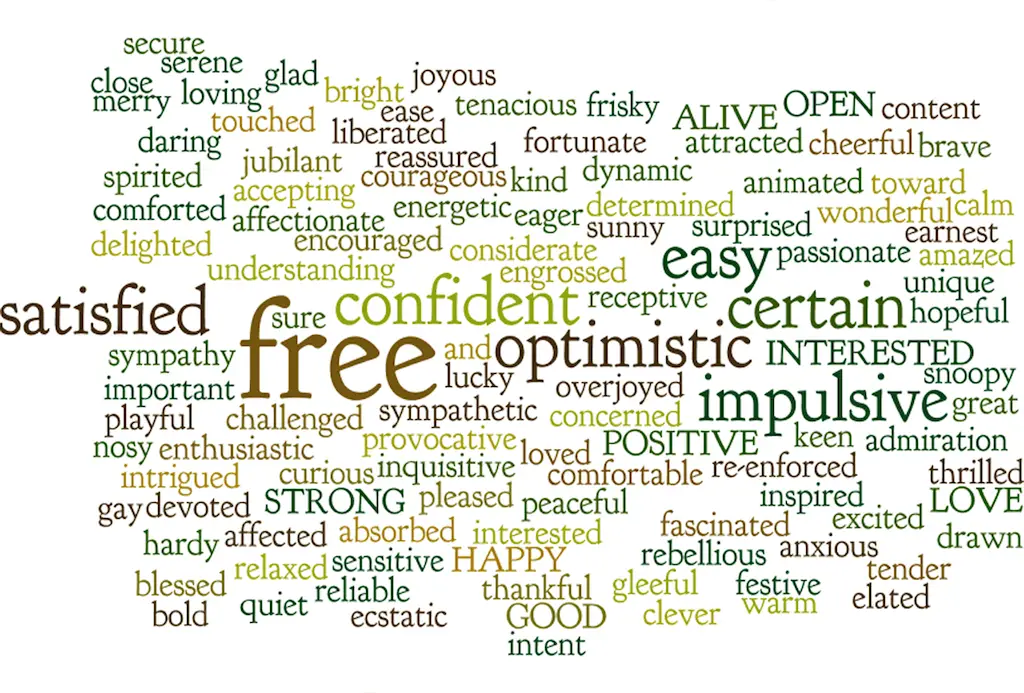
Optimism is a part of Resilience training. Cynicism and optimism ultimately suffer from the same shortcomings. They’re both based in attitude rather than reality (Lythgoe, 2018). However, a cynical attitude is one of those things that will lead you to focus on the negative, and the problem rather than the solution or the next step. Cynicism is a good way to get caught in a web of negative emotion, and life-style choices.
On the other hand, keeping an optimistic view, or working to develop your inner optimist is a good way to train your brain to focus on the next step of the solution rather than getting lost where the problem originally began. At times, it’s tough to keep the darkness of reality from effecting your self-confidence, but that’s why resilience is also important. The two just go hand in hand.
Reality is, sometimes, very harsh no matter how optimistic you may try to be so it’s important to hold optimism in check so that you’re not trading out fantasy for reality. It’s also important to hold onto it because your sense of optimism is what ultimately drives your inner voice.
You know that voice inside your head that either convinces you that: you’re a capable and intelligent human being; or you’re completely worthless and will always fail? It’s a rhetorical question. Of course, you know what voice I’m talking about.
This is your inner voice and it’s the source of your self-talk. Your attitude drives that self-talk. Any time you hear yourself talking and commenting on your performance or ability to do something, pay attention. If it’s telling you that you can’t, then it’s time to challenge that attitude and reassess the situation.
An Example: The Difference between a Debra and a Debbie Downer
Debra wants to go skydiving.
She’s never been so she has no frame of reference for her ability to actually jump from the plane. Coincidentally, when you jump for the first time, it will be a tandem jump, so you will ultimately have no control over actually jumping. But, let’s keep going with this scenario anyway.
Debra’s friends want her to go sky-diving. Since she’s never been, ultimately her decision to go, and put her life in someone else’s hands comes down to her own level of self-confidence.
Either.
A. Debra choses to get on the plane. She experiences the high level of stress associated with this ultimate uncertainty and addresses her own feelings in a way that allows her to literally take a leap of faith. In the end, her resilience, optimism, and self-confidence see her through.
B. Debbie experiences a high level of stress because of the certainty of gravity, and chickens out. Ultimately, a lack of resilience in her situation fails her sense of adventure.
Understand that Sky Diving is absolutely not for everyone. This is an extreme example used to illustrate a point. This same concept can apply to voluntarily taking on more responsibility at work, accepting a larger project, or even getting a dog. What you do, and your ability to succeed begins with self-confidence.
Relationships
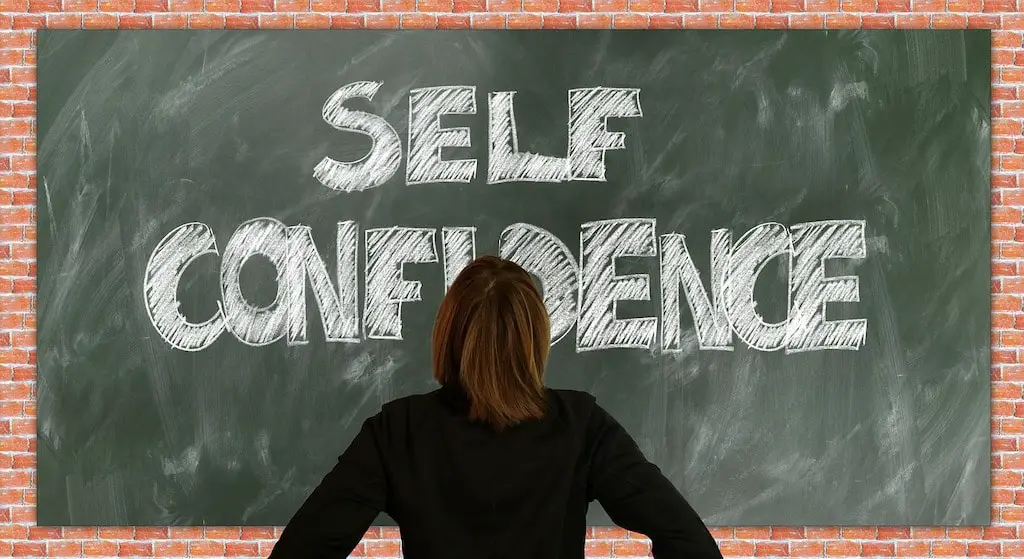
Whether you realize it or not, your interpersonal relationships have a huge impact on your self-confidence. It’s bad enough that you criticize yourself, but when others do it the situation just becomes worse.
Sometimes, culling a toxic relationship from your life just isn’t possible either because the source of that toxic relationship is too intrinsic in your family life, or because you have to work with that person. However, recognizing the issue and taking responsibility for how it will affect you personally is something you have complete control over.
Responsibility is something you are accountable for. This is not to say that you choose to accept the blame for everything that’s ever gone wrong in particular relationship. The point here is to recognize that a particular relationship has a negative impact on your life and health, and volitionally changing the dynamic where you decide how the negativity will ultimately affect you.
This requires the ability to recognize when something is wrong, how you feel, and address the situation in an optimistic and realistic manner.
Sometimes, what bothers us about our relationships isn’t their state of negativity, positivity, or neutrality in our lives. Sometimes it’s the criticism that comes with them. Remember that you have full control in how you allow anything to affect you.
High performance athletes who become Olympians, Industry leaders interviewed for Forbes Magazine who lead high pressure professional lives and high echelon Military personnel all have to carry a certain level of healthy self-confidence.
This often requires them to recognize that the reality of the situation is going to turn grim sometimes, and people are going to throw a criticism, but self-confidence is what allows you to hear feedback rather than criticism, and to decide to take that feedback and run with it.
To these people, who simply and majestically emanate self-confidence, adversity is just another chance for growth because they’re focusing on the positive rather than the negative, and asking themselves; “What’s next?”
Expect To Fail
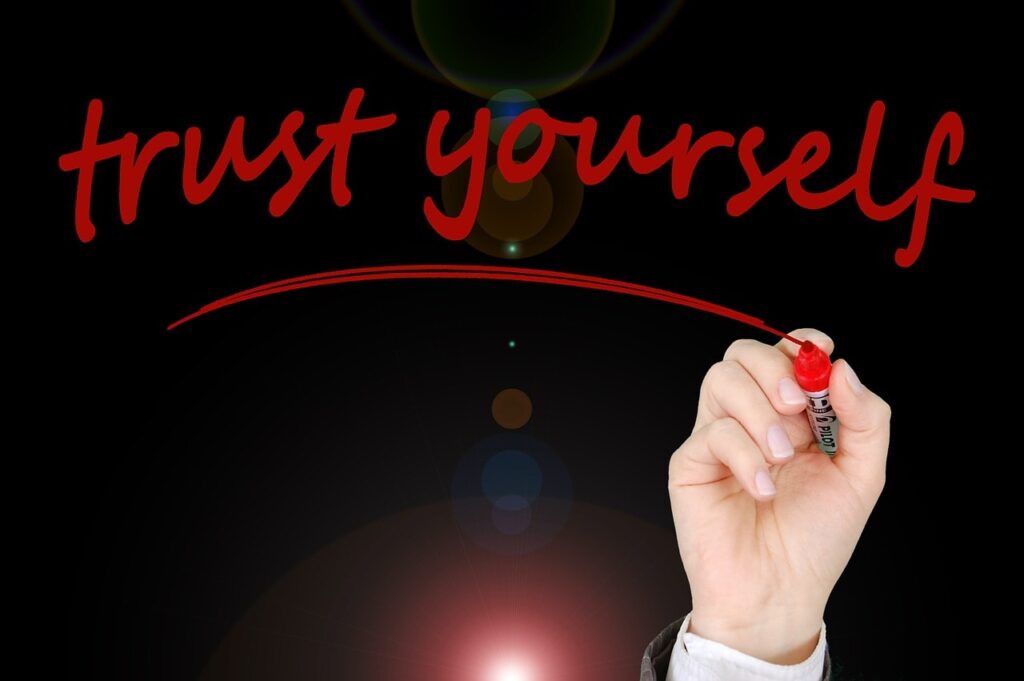
Failure is often seen by people with low self-esteem as the worst kind of negative. It’s the ending they really didn’t want, and so this is where a lot of people tend to give up.
However, when you expect to fail because adversity is what makes you grow, then the failure becomes a lesson rather than a hit to your confidence. Self-Confidence comes from experience and growth. It’s the tool that equips you with the ability to stand up and take on a new task, or level up in general.
Too many professionals reach a certain level of achievement that they’re comfortable with but become unwilling to put it on the line because they lack the self-confidence to take that next step. These people become stagnant, balding, overweight middle management without ever moving up the line.
Self-confidence comes with risk because it’s based in optimism, but it also comes with a high level of reward because it’s built by experience. Remember, you can build knowledge and experience, but success ultimately comes the confidence you have in yourself to utilize your skill set and succeed.
Expecting to fail isn’t cynical. You’re going to stumble and fall. During times of failure, you have your resilience to rely upon to help you address the stress, re-evaluate the situation, accept feedback (rather than criticism) and try again. Setting a boundary where you expect failure but keep sight of the positive experiences helps you to find the next step and achieve the next goal.
Daily Tasks That Build Self-Confidence
Of all of the suggestions you can take to heart in what you can do daily to build a healthy and stable self-confidence founded in optimism and resilience, probably the best suggestion and most important task is to design your Personal Handbook.
Your personal handbook is a book where you record purpose, values, and goals. All you need is a composition notebook that you can get from Wal-Mart, or you can find many great and inspirational journals on Amazon.
You write down what you ultimately want out of life, what your values are, where your boundaries lie, what your strengths are, and what your accomplishments have been. Every day, you get up and re-read about your accomplishments.
Don’t, under any circumstances, list your failures. Your failures were just stumbling blocks to your eventual accomplishments and successes, or at the very least, those failures that you expected are getting you to your accomplishments. It’s also a good way to start each day off with a reminder for the importance of optimism.
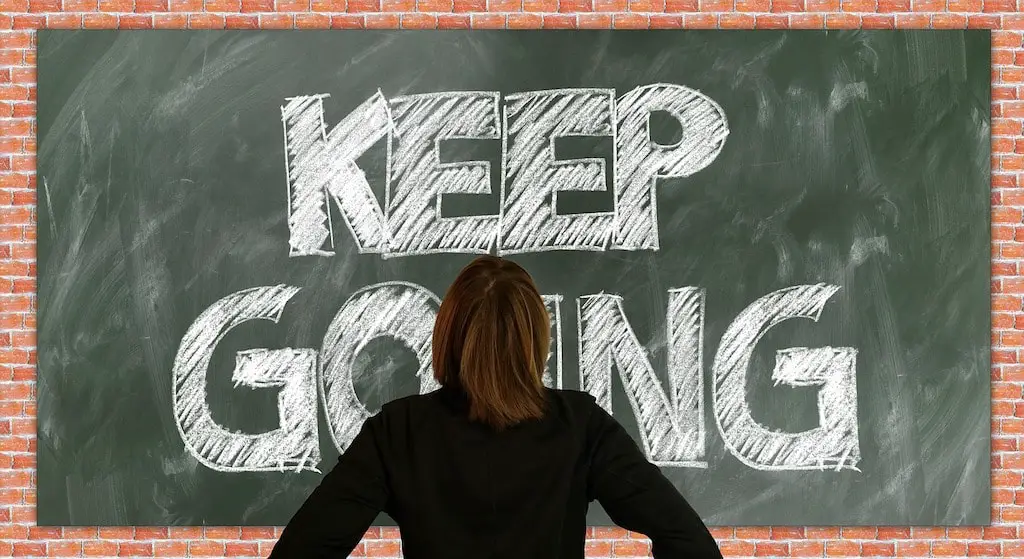
Exercise
- Exercise helps memory retention
- Improves focus
- Helps to manage stress
- Releases excess energy that can be used against you when you get overly nervous
Set Yourself A Realistic Goal That You Can Achieve
Self-confidence is ultimately developed from personal experiences and achievements. Every year, millions of people create their own resolutions list for the New Year. Every year, though, many of those people take a hit to their self-esteem when they fail to keep sight of their resolutions. So, rather than making a list of all the things you want to achieve, make one goal.
Set one goal for yourself that you can accomplish.
- Meet your steps goals for the week
- Plant roses in the flower bed
- Deep clean one room in your house down to the dust on the ceiling fan
- Fold and put away that stack of clean clothes you pulled out of the dryer two days ago
- Develop a new healthy habit rather than focusing on getting rid of a bad habit rooted in addiction
- Finish that book on your side table that you started six months ago
Most importantly: Expect failure.
So, you went and got the roses for the flower bed, but maybe you didn’t get them in the ground right away, and then it started to rain. Fine. The roses are still alive right? Rather than give up, accept the failure as a lesson and try again when the rain stops.
The optimist will know that the rain will eventually stop, and hope that the roses, which have survived in their pots this long, will last a few more days.
The resilient mind will understand that something probably came up and will address the stress of the situation. Your self-confidence tells you that, when the time comes, you have the skill set needed to dig a hole and drop in the roots.
Pay Attention To Personal Needs
- Take a shower
- Wash your hair
- Style your hair in a way that does not involve lazily throwing it up into a ponytail
- Shave
- Put on clean clothes that smell like your fabric softener
- Change your bed sheets
- Pick up any messes around the house
- If it’s the right time of year, and it’s something you enjoy- Open the windows and recycle the air in your home
- Clean the dishes
Personal needs extend from personal hygiene to the mess you live in. Let’s face it, you probably have a nest or mess somewhere in your home that is irritating you. Or there are dishes in your sink from the night before. Having that clean feeling lends a sense of accomplishment.
Focus On Resilience As A Matter Of Daily Activity
- Learn to recognize and address your personal stress signals like headaches, or tightness in certain muscles
- Make a point to laugh each day
- Express kindness in some way to others
- Step out of your comfort zone a little bit more today than you did yesterday or last week
- Accept an invitation to tea rather than giving a blanketed no to every offer
- Reach out to people you haven’t spoken to in a while who you miss
- Practice positive self-talk and giving yourself praise
Resilience is important to self-confidence because it will not only help you to build up what you’re missing, but it will also see you through when your confidence takes a hit from expected or unexpected failure, or criticism when you forget to focus on feedback.
Focus On You
• Actively avoid Debbie Downers, and seek out the Debra’s around you
• Continue learning- even if you’re the leading expert in your field, always strive to learn more
• Focus on your posture going as far as modeling your posture for yourself in your mirror
• Smile when you talk
Believe it or not, focusing on yourself isn’t selfish. It’s called basic self-care for a reason. Avoiding Debbie Downers or people with a generally negative attitudes isn’t selfish either. You feel the impact of everyone in your circle, whether or not you have a choice concerning their presence. Take responsibility for how you allow these people to affect you.
Also, work on your posture. People who glow of self-confidence carry themselves upright with their shoulders back (Burton, M.D., 2012). Unfortunately, some physical limitations can affect this, but it is possible to hold your head high, your shoulders back, and your back straight either literally or figuratively. Ultimately it comes down to you. If you need to, practice while watching yourself in the mirror.
Smile When You Talk
Only a small portion of what is heard from you comes from the actual words you say. Other communication factors include inflection of your voice, posture, facial expressions, and hand gestures. By smiling, you can sub-consciously elevate your voice to a happier mood, and whoever you’re communicating with will recognize that. This works over the phone as well.
Don’t believe it? The next time you have a phone conversation, regardless of your mood, smile while you speak. You’ll notice the difference.
Go Easy On Yourself

Remember that the most accomplished athletes, business professionals, and Generals experience a hit to their self-confidence. Often, what sets apart those who have a healthy and developed level of self-confidence from those people who hide their low self-esteem goes back to resilience.
In working on building up your self-confidence you want your work to have meaning and substance. You want your confidence to stand up to scrutiny and criticism.
This isn’t about putting on a brave face, wearing a stiff upper lip, and hiding who you really are. This is about you, carrying yourself with confidence, and being able to thrive even when you fall.
A concerted focus on building up your resilience will help you to develop the mechanisms you need to recognize negative self-talk, and challenge those comments made. You will be able to assess a problem for the solution, rather than for a way to blame yourself. And remember, responsibility is not the same as blame.
If you fail, rather than blaming yourself for your own shortcomings, take a moment to recognize that you failed, why you failed, and how you can take responsibility for your next actions and thought processes.
Challenge negative self-talk every time. Go easy on yourself, but do not go easy on your inner critic. You have complete control over your self-talk and how you edit your story, so exercise that control. If you make a mistake, recognize that it’s not the end of the world and move on.
Practicing optimism is like practicing anything else. We’re not born sad, or pessimists. We grow into these habits, but the good news is that habits can be changed through effort. Work on your personal handbook, and daily tasks.
By choosing a few, not necessarily all, of the above tasks you can begin to form the thought processes needed to change your default setting form cynical and pessimistic to optimistic. In doing this, the next time you want to level up in life or work, you have the default mindset of, “I can do this.”
Finally, take note of the people around you and accept responsibility. It would be a fantasy to believe that optimism is an impenetrable shield against negative influences in your life. People are going to irritate you, throw shots at you from criticisms, and overall just impact your self-esteem.
This is what self-confidence, resilience, and optimism are for. We don’t use these tools when everything is perfect and moving along smoothly without effort. We rely on our self-confidence when we need to put concerted effort into a task and achieve a goal.
Use what you learned here to let go of self-judgment and self-blame. Edit your story and inner voice. Expand your knowledge and skill set, protect your values and moral system, develop competencies, resilience, optimism, and build your self-confidence.







